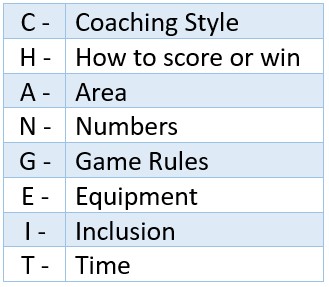
Coaching and Umpiring
Does your Association/League/Club have a written agreement for your volunteer coaches?
Do they know exactly what is expected of them as a volunteer coach, and in turn what their Association/League/Club is required to provide them?
It is important there is a written document outlining the various points the Association/League/Club has agreed to with the person taking on the role of a volunteer coach. Coaches should be better appraised of their responsibilities and what the Association/League/Club will provide for them.
What should be included in a written agreement for Coaches?
1. The agreement should be clear about the many matters which coaches need to know about their appointment with your Association/League/Club. These include:
- How long the appointment is for
- What benefits a coach is entitled to receive
- Who they are accountable to
- Who they are responsible for If they are not recorded in some way, differences can arise over what was expected and what was in fact provided or happene
2. The Association/League/Club should recognise the commitment that the volunteer coach is making. By outline the length and nature of the appointment you are both clear about the future.
3. The Association/League/Club should record any entitlements provided to the coach during the appointment in the agreement. This may include reimbursement of expenses, supply of clothing or an honorarium. The agreement should outline when any entitlement will be provided as well as any conditions involved.
4. As Association/League/Club personnel can change frequently, a written agreement provides stability for both the coach and the Association/League/Club regarding roles and responsibilities.
5. The roles and responsibilities of the coach should be clearly stated in the written agreement or attached duty description.
6. The agreement should refer to any documents that the coach are required to abide by during the appointment (Netball Victoria MPR, Coaches COB, Club Selection Policy).
7. Termination clause – what happens if the coach terminates the agreement, what if the Association terminates, reasons eligible for termination. Remember that a simple exchange of letters which is agreed upon is a contract and is legally binding, so make sure any written document details everything you understand the arrangement to cover.
Why do we need Coach education?
Coaching is a lot more than running practice sessions and turning up on game day. Coaches are an integral part of all sports. They teach players how to play the game, how to interpret the rules, how to use safe and correct techniques, and how to behave both as an individual and as part of a team. They need to know how to deal with players of different abilities, ages, and objectives and how to relate to the relevance of the competition.
The coach must also understand the skills required to play the game, be aware of changes in rules and regulations, have access to new coaching techniques and resources, and have an understanding of first aid and basic injury care. In addition to being a specialist in the particulars of their chosen sport, the coach is now also required to be aware of such issues as healthy lifestyles, bullying, drugs in sport, respect for officials, harassment, abuse of power, and judging when a player should return to sport after an injury.
Types of Education
Netball Victoria offers a range of opportunities to assist coaches in their professional development. A coaching pathway has been established to assist beginner coaches right through to coaches at the elite level. There are seminars, workshops, and conferences conducted each year to enable individuals to update and advance their skill sets.
- Netball Australia Accreditation Framework
- Coaches in the Field
Coaches in the Field
Coaches in the field program supports the existing National Coach Accreditation Framework. Coaches in the Field workshops are designed for coaches at the grassroots level, with some additional workshops aimed specifically at Development (or higher) accredited coaches. The Workshops are delivered by Netball Victoria’s most experienced Coach Developers.
Grassroots Workshops:
- Intro to Coaching
- Game Sense
- Footwork
- Ball Handling
- General Attacking Skills
- General Defending Skills
- Game Day Coaching
Development Workshops:
- Specialist Centre Court
- Specialist Goal Circle
Coaches play a vital role in developing individuals through sport. They are an important cog in the provision of the skills and knowledge needed to develop, improve, and succeed. It is essential that coaches provide people of all ages with the best possible netball experience, which will in turn ensure their continued participation and development in the sport. Make sure you are being the best coach you can be. For more information and access to more Coaching Resources click here.
It is essential that coaches are aware of their roles and responsibilities in relation to their activity, the risks associated with their activity and ways of managing or minimising the effects of those risks.
Coaches in sport are under a legal duty to exercise reasonable care to avoid injuring participants under their control. A breach of this legal duty is called negligence. Negligence is unintentional harm caused to others as a result of some degree of carelessness. The following are some useful safety principles and procedures identified to reduce coaches’ exposure to negligence suits. (Note: some of these procedures should already be implemented by your club.)
- Plan all training sessions
- Provide a safe environment including safe and proper equipment.
- Exercise efficient supervision to protect the young or inexperienced.
- Distribute the club’s code of conduct for players for training and general play.
- Limit the numbers to prevent overcrowding.
- Maintain good control of the group by use of signals or by other communications.
- Match participants fairly (in a physical sense, eg. strength).
- Know and apply appropriate policies, programs, and rules.
- Give instructions and warnings about ordinary and unexpected dangers.
- Take reasonable steps to ensure that medical care is present or accessible and be prepared to remove injured players from participation.
- Ensure that athletes returning from injury provide a letter from parents or medical personnel certifying that they are fit to participate.
- Conduct regular safety inspections and review of equipment, facilities, and operating procedures.
- Take reasonable steps to ensure that the skills and qualifications of personnel are current.
- Record accidents and injuries and review safety procedures and if necessary, modify the rules of the activity. (Australian Coaching Council and adapted from “Coaching and the Law” Canada, Sports Coach 1993).
While these steps are not exhaustive, implementing them will substantially reduce the chances of a successful claim of negligence against a coach. There are a number of good reasons for coaches to develop a good understanding of their legal responsibility or have risk management procedures in place. The main three are:
- To reduce the risk of litigation;
- To become better coaches by being more aware of appropriate activities, programs, and rules as well as safety issues;
- To protect the athletes and yourself by continually upgrading the risk management procedures.
Coaches at ALL levels have a duty to ensure that athletes and others under their control are not injured. This duty exists whether a coach is a professional, amateur or volunteer because they have placed themselves in a position that suggests a level of competency.
Professional Liability Insurance for Coaches
All Netball Victoria accredited coaches, course presenters, and instructors are required to:
- Maintain current accreditation (ie: update every 4 years).
- Be current members of Netball Victoria.
Membership ensures that coaches are covered for liabilities while acting as a professional person. Coaches’ risk of litigation may arise from athlete injury, inappropriate training program, libel and slander, assault, and athlete selection.
Membership entitles you to ‘benefits’ such as access to our services and personnel, information about safe practices and appropriate training activities.
Whilst non-accredited coaches are not required to be registered with Netball Victoria, it is strongly recommended that coaches who are in a position of responsibility assuming the role of a coach on a regular and consistent basis do so, no matter what age group they coach.
What does the Insurance include?
Coverage for:
- Public Liability
- Product Liability
- Professional Liability
It covers Netball Victoria’s registered coaches (and members) for all amounts which the “insured” may become legally liable to pay as a result of: Statute – Legislation appropriate to the environs of the sport; Contract – Failure to perform or provide and Common Law – Law of the Land. The insurance also provides cover for compensation as a result of bodily injury, property damage and financial loss, caused by an occurrence and rising out of the activities of Netball.
Professional Indemnity
Covers coaches whilst acting as a “professional” person against a claim for a mistake that has caused a financial loss to a Third Party without property damage or personal injury occurring. A professional person is one who offers services or advice in a specialised field, for fee or reward. Defence Costs - Whether or not you are legally liable, your policy will provide legal costs incurred with the Insurer’s consent, in defending an action. This amount will be independent of the sum insured and limited to the indemnity limit of the policy.
How much are you covered for?
For more information please refer to: V-Insurance https://vic.netball.com.au/insurance or email netball@vinsurancegroup.com If an incident occurs where you are being held liable by a third party, you should contact V-Insurance Group as soon as possible on (02) 8599 8660 or local call cost only 1300 945 547. Do not admit liability under any circumstances.
For all policy queries or details on how to make a claim, contact V-Insurance (Insurance Broker for Netball Australia) as detailed above.
Netball Victoria is committed to the provision of opportunities for people with disabilities to play Netball. As such, Netball Victoria provides a number of professional development opportunities for coaches to be better skilled to include people with a disability in netball. Working with netballers with a disability is about providing more people with the opportunity to play netball and connecting to new players that you may not have thought about. People with disabilities can play netball in an all-abilities program or a separate disability-specific competition, such as a competition run exclusively for people with a disability. They can compete in a regular club competition with able-bodied peers, or any combination of the two. The decision as to the type of inclusion must be based on the athlete’s choice.
Netball is based on general movement and ball skills and its structured format, placing restrictions on the areas of the court into which a player may go, means that it is truly a team game. With minor modifications to the rules regarding mobility, equipment and decision‐making, netball can offer the rewards of social connectedness, cooperation, fitness, and fun to almost anyone who wants to take part. Flexible coaches adapt and modify their coaching and create an environment for individual needs and allows everyone to take part. The onus of inclusion rests with the coach.
Inclusive coaching should not be considered a separate coaching skill, but a reflection of good coaching practice.
Tips and Points to Remember
When coaching people with a disability, there are some specific points to remember:
- Think ability, not disability - work with what the player can do, everyone has abilities of some kind.
- Modify for all - any activity or skill/activity can be modified to better cater for all participants. In most instances, a rule, equipment, environment (such as a playing surface), or instruction style can be changed to allow all participants to better improve their skills.
- Activities and games must always be age and ability-appropriate.
- Players may need one-on-one coaching.
- Never assume what players can and cannot do. Ask questions and give them the opportunity to try.
- Be patient and repeat instructions as needed.
- Don’t be afraid to laugh with participants and have fun.
- Above all, coaching Netballers with a disability is nothing more than coaching. All good coaches cater to the individual styles and abilities of their players already.
The Change It Model
The Change It model for inclusion provides an outline to ways activities can be modified to be more inclusive. Coaches can change one or all of them.
Other Resources

